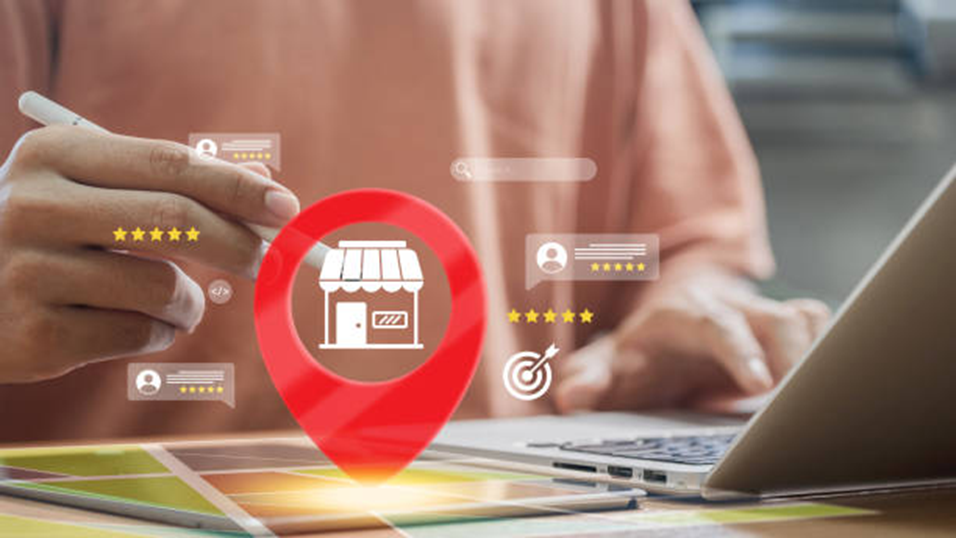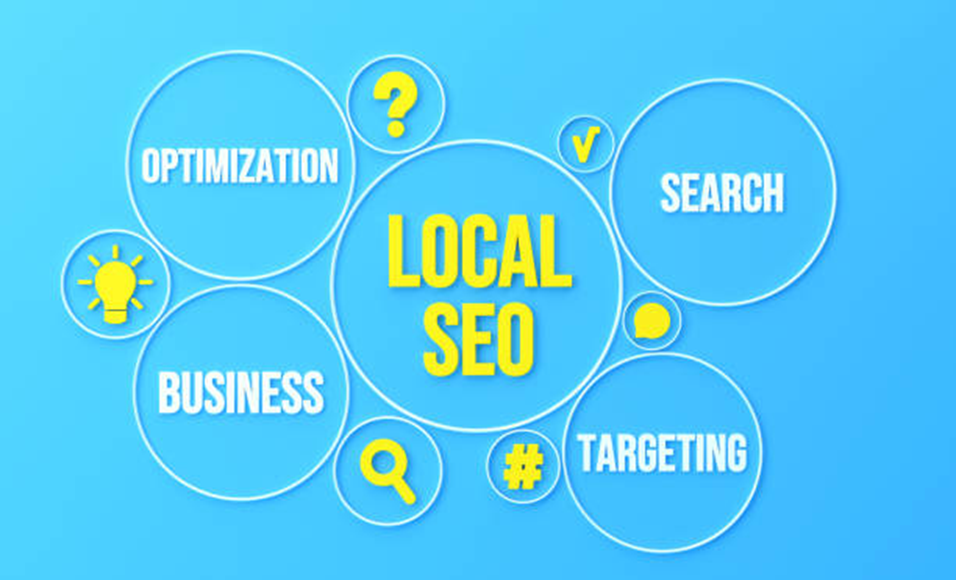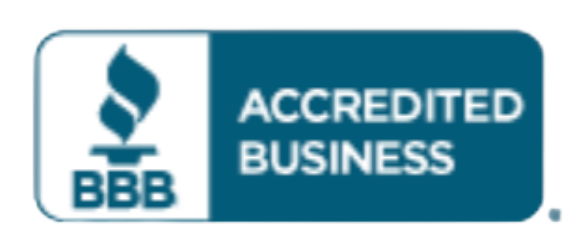Local SEO Services Hacks: How to Rank in Multiple Cities
Local SEO can be a powerful tool for small businesses, especially when trying to rank in multiple geographic areas. However, optimizing your website to appear in different location-based searches comes with unique challenges. Whether you're a service provider or a multi-location business, a solid strategy is crucial to reach the right audience in each area.
At Sound UP Marketing, we've worked with many local businesses to improve visibility across regions. This guide walks you through best practices to structure your local SEO strategy effectively and sustainably. Instead of relying on shortcuts or spammy tactics, we’ll explore how to build long-term local visibility through clean SEO principles.
Understand the Basics of Local SEO
Local SEO refers to the process of optimizing your online presence to attract more business from relevant local searches. These searches typically include a specific location or “near me” keyword intent. Ranking for local queries requires a combination of technical optimization, content strategy, and local signals.
If you operate in more than one location, your goal should be to make your business discoverable in each of those areas without diluting your core brand identity. A tailored approach for each region, while keeping your SEO practices scalable, is the foundation of success.
Set Up a Unique Page for Each Location
A common mistake businesses make is trying to rank in multiple cities using a single website page. Google rewards specificity, so your website should have a dedicated landing page for each service area. This allows you to target location-specific keywords and include relevant content tailored to each area.
For example, if you serve Long Island, a dedicated page like Sound UP Marketing’s Long Island SEO Services can help you rank more effectively. Each page should include the area name in the URL, H1 tag, metadata, and throughout the body content.
Use Consistent NAP Across All Pages
NAP stands for Name, Address, and Phone Number. One of the strongest ranking signals for local SEO is consistent business information across your website and external directories. Each location page should display the correct NAP details for that location.
Avoid using the same address or contact number for every city page. Instead, customize this information per location and ensure it's consistent across Google Business Profile, Yelp, and other citation platforms. This increases Google’s confidence in your business data and helps you rank better locally.
Create Locally Relevant Content
One of the best ways to establish authority in different locations is by creating content tailored to each area. Talk about local events, industry trends, customer success stories, or frequently asked questions in that region. This not only adds keyword-rich content but also increases relevance to local audiences.
For instance, if you're creating content for Suffolk County, highlight specific challenges businesses there face and how your services help solve them. Local relevance adds depth to your SEO and positions you as a community-aware brand. At Sound UP Marketing, we emphasize content that connects with local intent.
Optimize Google Business Profiles for Each Location
Having a well-optimized Google Business Profile (formerly Google My Business) is critical for ranking in the map pack and local search results. If your business operates in more than one location, you should set up and verify a separate profile for each one.
Use unique business descriptions, images, service areas, and hours for each profile. Encourage customers from each location to leave reviews on their corresponding profiles. Keep each listing updated with accurate information to reflect changes in operation or service offerings.
Build Local Backlinks for Each Area
Backlinks remain a top-ranking factor in SEO, and this holds true for local SEO as well. However, when targeting multiple locations, you should aim to build backlinks from local businesses, blogs, and media in each specific area you serve.
Consider sponsoring events, collaborating with local organizations, or writing guest posts for region-specific blogs. This strengthens your authority in each local market. A link from a local chamber of commerce or a regional news site can carry more weight than a generic national backlink.
Use Schema Markup for Local Business
Local business schema helps search engines understand your business details more effectively. Adding structured data to each location page gives Google the extra context it needs to index your pages accurately and display rich snippets in search results.
Implement schema that includes your business name, address, phone number, geo-coordinates, business hours, and service area. Ensure the schema data on each page corresponds exactly to the on-page content and your Google Business Profiles.

Target Local Keywords Strategically
When optimizing your content, don’t just focus on city names—include neighborhoods, zip codes, and surrounding areas. This makes it easier to rank for long-tail keywords that users often search with higher purchase intent. Be sure to naturally include these keywords in headings, subheadings, and throughout your body text.
A robust keyword research process tailored to each location helps you uncover opportunities your competitors may have missed. At Sound UP Marketing, we analyze local search volume and competitor data to develop keyword strategies that align with regional trends.
Avoid Duplicate Content Across Location Pages
It may be tempting to use a copy-paste template for every location page, but duplicate content can hurt your rankings. Instead, create unique value propositions, testimonials, and visuals for each area to make every page distinct and relevant.
Include local maps, unique service highlights, case studies, or even local team bios where applicable. Google values content that reflects real differences, so investing in original content creation is worth the effort.
Develop a Scalable Internal Linking Structure
Internal linking helps distribute authority across your site and guides both users and search engines. When you have multiple location pages, it's important to interlink them from relevant pages, like your homepage or service overview pages.
You can also link between nearby or related location pages to help build topical clusters. For example, from the Long Island page, you might link to another nearby city or service area you serve. This increases crawlability and improves the contextual strength of each page.
Track and Monitor Local SEO Performance
Optimizing for multiple locations isn’t a one-time task. Use tools like Google Search Console, Google Analytics, and local rank trackers to monitor performance across locations. Track metrics like keyword rankings, traffic per location page, bounce rate, and conversion rate.
Analyzing which pages perform best helps you replicate successful strategies across other pages. And by continuously optimizing based on real data, you ensure sustained growth across multiple markets.
To stay ahead, schedule regular audits and adjust your content and strategies as your business expands. For a custom strategy, you can always contact Sound UP Marketing for support in building a data-driven local SEO plan.
Prioritize Mobile Optimization for Local Searches
More than half of all local searches are conducted on mobile devices. Your location pages should load quickly, display clearly, and offer click-to-call functionality. Mobile-friendliness is not only a user-experience requirement—it’s also a ranking factor.
Make sure forms, maps, and directions are easy to use on small screens. Local searchers are often ready to act fast, and any friction in the mobile experience can lead to lost opportunities. Optimizing mobile UX helps convert traffic into real customers in each region.
Use Location-Based Testimonials and Reviews
Social proof plays a powerful role in local SEO. Featuring customer reviews from each location on its respective page can improve trust and conversion rates. Whenever possible, include the name of the town or city in the testimonial to increase relevance.
Ask satisfied customers to leave reviews on both your website and your Google Business Profile. Respond to every review professionally and personalize your responses to each area. This level of interaction signals to both users and search engines that you’re actively engaged in every market.
Leverage Service Area Pages for Broader Reach
If your business serves a wide range of areas but doesn’t have physical addresses in each one, service area pages can help. These pages can target clusters of cities or counties, outlining the services offered and any regional insights.
Sound UP Marketing’s approach includes optimizing these pages for clarity, relevance, and keyword alignment without keyword stuffing. Use these pages strategically to cover areas where opening a location-specific page may not be ideal.
Build Citations in Local Directories
Listing your business in reputable local directories helps increase online visibility and trust. Make sure your listings include accurate and consistent information for each location, especially the NAP details and business category.
Some well-known directories include Yelp, Bing Places, Apple Maps, and local chamber websites. Adding these citations for each location enhances your off-site SEO signals and reinforces Google’s understanding of your business footprint.
Don't Rely Solely on One Channel
While local SEO is essential, your multi-location strategy should include a mix of traffic sources. Integrate email marketing, paid search, and social media outreach to drive traffic and engagement across regions.
A diversified approach protects your business from algorithm shifts and broadens your marketing reach. If you need help coordinating a cross-channel strategy tailored to local markets, Sound UP Marketing offers consulting and digital management for scalable results.
Frequently Asked Questions (FAQs)
Q1: Can I rank in multiple cities with one location?
Yes, but you’ll need to focus on service area pages rather than physical address pages. Use high-quality content, local keywords, and supporting SEO strategies to target those areas effectively.
Q2: How many location pages should I create?
Only create location pages for cities or regions where you actively serve customers or want to grow. Don’t create pages for areas where you don’t operate, as this can dilute your SEO value.
Q3: Do I need separate Google Business Profiles for each location?
Yes, if you have physical locations in multiple cities, each should have its own Google Business Profile with unique information and regular updates.
Q4: How do I keep content unique across all location pages?
Tailor each page to the local audience using different testimonials, service highlights, team bios, and neighborhood-specific references. Avoid copying and pasting the same content.
Q5: What tools should I use to track local SEO success?
Tools like Google Analytics, Google Search Console, BrightLocal, and SEMrush can help monitor rankings, traffic, and conversions for each location.
If you're ready to expand your business's visibility across regions, implementing a comprehensive local SEO strategy is key. To get tailored support, consider reaching out to the experts at Sound UP Marketing.
Let your brand be seen in every neighborhood you serve—because with the right strategy, local reach can become limitless.
Ready to turn the
#SoundUP?
Let's connect! We’re here to help.
Send us a message and we’ll be in touch.
Or give us a call today at 631-919-7441
Agency Contact Form
More Marketing Tips, Tricks & Tools












